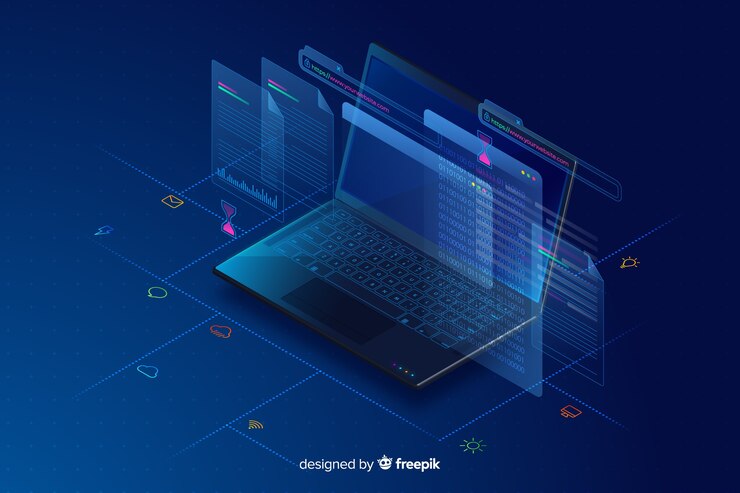Today’s fast-paced business environment has raised customer expectations to a whole new level. Whether it’s technical support, service requests, or product-related queries, businesses are expected to respond quickly and efficiently. But handling dozens or even hundreds of customer or internal support requests manually often leads to confusion, delays, and missed follow-ups.
A ticket management system solves this challenge. It streamlines the entire support process, helps resolve issues faster, and boosts customer satisfaction — all from one organized platform.
What is a Ticket Management System?
A ticket management system is software that helps companies manage, track, and resolve customer and employee service requests. Each request is logged as a “ticket” that can be assigned, prioritized, updated, and closed when resolved. It’s used in various industries including IT support, customer service, HR, facility management, and more.
For example, when a customer reports an issue through a helpdesk or contact form, a ticket is automatically created. That ticket contains all the relevant details—like the user’s information, the problem description, the time it was logged, and the assigned support agent. The system tracks every step from creation to resolution, ensuring no request is ever missed.
Why Your Business Needs It
Here are a few compelling reasons why implementing a ticket management system is essential for growing businesses:
- Centralized Request Handling
All support tickets, no matter how they are submitted (email, web, phone), are stored in one place. This avoids scattered communication and makes it easy to manage everything from a single dashboard. - Faster Response and Resolution
With clear ticket assignments and automated workflows, support teams can respond faster and resolve issues without unnecessary delays. - Better Prioritization
Tickets can be tagged based on urgency and type. Critical issues are dealt with first, while less urgent ones are scheduled appropriately. - Improved Collaboration
Multiple team members can work on complex tickets together, leave internal notes, and share progress, which leads to better and faster solutions. - Customer Satisfaction
With a professional ticketing process in place, customers receive timely updates, clear communication, and quick resolutions—leading to improved satisfaction and trust. - Performance Reports and Analytics
Managers can access performance dashboards that show the number of tickets resolved, average resolution time, team productivity, and common issues. These insights help improve service strategies.
Use Cases Across Departments
While commonly used by IT and support teams, a ticket management system is also useful in other departments:
- Human Resources: For handling employee requests like leave approvals, payroll questions, or document queries.
- Facility Management: For handling repair or maintenance requests in offices or buildings.
- Customer Support: For handling product queries, order complaints, or general feedback.
- IT Support: For managing technical issues like login problems, hardware support, or system outages.
The flexibility of a ticket management platform makes it valuable across various industries and teams.
Benefits for IT Companies
Among the biggest beneficiaries of ticketing systems are IT companies in Delhi NCR and beyond. These companies often deal with complex client support, internal technical issues, and software maintenance requests.
For IT service providers, timely resolution and tracking of client issues is critical. A professional ticket management system offers:
- SLA tracking to ensure deadlines are met
- Custom workflows for different client needs
- Multi-level ticket approvals and escalation
- Easy integration with CRM, email, and chat tools
- Detailed activity logs for accountability
These features make service delivery smooth and professional, giving IT companies a competitive edge in the crowded NCR market.
A Real-Life Scenario
Let’s say you run a mid-sized tech firm offering SaaS products. Your clients raise support tickets daily—password resets, software bugs, feature requests. Without a system, your support team handles these manually through emails or calls. It becomes hard to track who’s working on what, deadlines are missed, and customers get frustrated.
Now imagine you introduce a ticket management system. Every request is logged automatically. Tickets are categorized and assigned to the right support agents. Follow-up reminders are sent, and clients get automated updates. Your team spends less time sorting and more time resolving. Result? Happier customers, better team performance, and fewer missed tickets.
Key Features to Look For
When choosing a ticket management system, make sure it includes:
- Custom Ticket Categories: Group tickets by type (technical, billing, etc.)
- Auto-assignment Rules: Assign tickets to the right person based on rules.
- SLA Monitoring: Track how fast tickets are resolved.
- Email and Chat Integration: Connect communication channels into the system.
- Mobile Access: Let your team access and update tickets on the go.
- Knowledge Base Integration: Share FAQs and self-help articles with users.
- Reports & Dashboards: Monitor team performance with real-time data.
The right combination of features depends on your business size and nature—but even a simple system is far better than none.
Choose the Right Software Partner
Implementation success depends not just on the software but also on the support you receive. That’s why it’s smart to work with experienced IT companies in Delhi NCR that specialize in business process automation.
Local IT providers can:
- Customize solutions to your exact workflow
- Provide quick, on-site training and support
- Offer affordable plans with local service teams
- Guide you through best practices for long-term benefits
Working with local experts ensures that you don’t just adopt software—you actually make it work for your business.
Conclusion
A ticket management system is more than just a support tool — it’s a business enabler. It brings clarity to chaos, improves response time, and builds a professional image. Whether you’re a startup or an enterprise, managing support requests effectively leads to better relationships, more loyalty, and smoother operations.
If you want to improve service efficiency and keep your customers happy, now is the time to invest in a smart ticketing solution. And for businesses in NCR, collaborating with top IT companies in Delhi NCR ensures you get expert implementation, reliable support, and long-term value.


